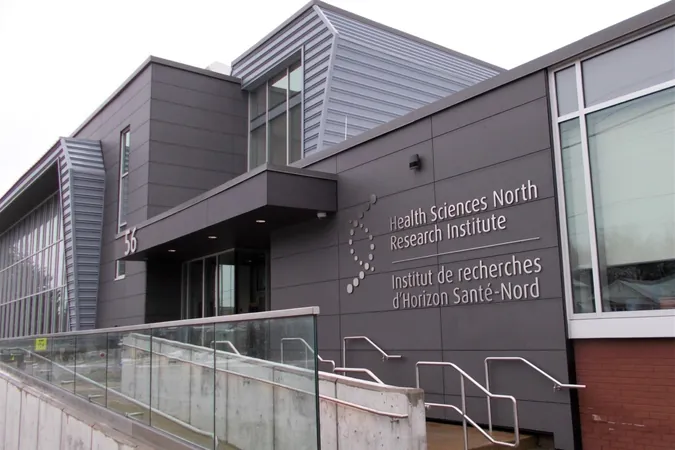
Revolutionizing Cancer Treatment: How Clinical Trials Are Empowering Patients in Sudbury
2024-11-08
Author: Charlotte
Revolutionizing Cancer Treatment: How Clinical Trials Are Empowering Patients in Sudbury
In a groundbreaking event held at Science North's Vale Cavern in Sudbury, residents were informed about significant advances being made by the Health Sciences North Research Institute (HSNRI) in the battle against cancer. This public gathering underscored the critical role of clinical research in enhancing cancer care and improving patient outcomes within the community.
Many locals may be unaware of the extensive cancer research initiatives taking place right in their backyard, or that they have the opportunity to participate in clinical trials without leaving Sudbury. Amanda Snyder, a dedicated clinical research study coordinator at Health Sciences North, highlighted the importance of these trials not only for patients but also for the advancement of cancer treatment on a broader scale.
Snyder elaborated that clinical trials provide patients access to innovative treatments that are still in the experimental phase, which can significantly improve their chances of a successful outcome. Currently, HSNRI is conducting 10 active clinical trials encompassing a diverse range of studies—from academic investigations to radiation and investigational drug trials. The goals of these trials often focus on improving overall survival rates and managing symptoms more effectively.
One particularly noteworthy trial involves patients suffering from oral mucositis, a painful complication frequently associated with chemotherapy and radiation therapies. This condition leads to painful mouth ulcers, making it extremely difficult for patients to eat or drink, and often results in the need for nutritional support via a gastrostomy tube.
Thanks to the ongoing drug trials, patients have been able to receive effective medication that alleviates the discomfort of oral mucositis, allowing them to maintain their nutrition and hydration without the added burden of hospitalization during treatment. Snyder shared the encouraging outcomes of this research, stating, "The dual purpose of the study was to benefit the patients while simultaneously pushing research boundaries forward."
Interestingly, the success of this trial drew the attention of representatives from the U.S. Food and Drug Administration (FDA), who visited Sudbury to monitor its progress. "It was the first time the FDA observed our site for such a study," Snyder remarked, illustrating the level of importance and scrutiny such research attracts.
Snyder also acknowledged that not all patients may fully understand the opportunities presented by clinical trials at such a challenging time in their lives. When faced with a cancer diagnosis, patients are flooded with information, creating potential overwhelm. Having a supportive healthcare professional, especially one within their family, can be invaluable in helping patients navigate the complexities of clinical research participation and its potential long-term benefits.
One of the most significant advantages of enrolling in a clinical trial, Snyder noted, is the elevated level of personalized care that participants receive. With dedicated nursing staff guiding them through every step, patients are ensured a seamless experience, minimizing feelings of confusion or distress throughout their treatment journey.
As the HSNRI continues its pivotal work in cancer research, it remains hopeful that such initiatives will not only enhance patient care and recovery in Sudbury but also contribute to the global fight against cancer in meaningful ways.









 Brasil (PT)
Brasil (PT)
 Canada (EN)
Canada (EN)
 Chile (ES)
Chile (ES)
 España (ES)
España (ES)
 France (FR)
France (FR)
 Hong Kong (EN)
Hong Kong (EN)
 Italia (IT)
Italia (IT)
 日本 (JA)
日本 (JA)
 Magyarország (HU)
Magyarország (HU)
 Norge (NO)
Norge (NO)
 Polska (PL)
Polska (PL)
 Schweiz (DE)
Schweiz (DE)
 Singapore (EN)
Singapore (EN)
 Sverige (SV)
Sverige (SV)
 Suomi (FI)
Suomi (FI)
 Türkiye (TR)
Türkiye (TR)